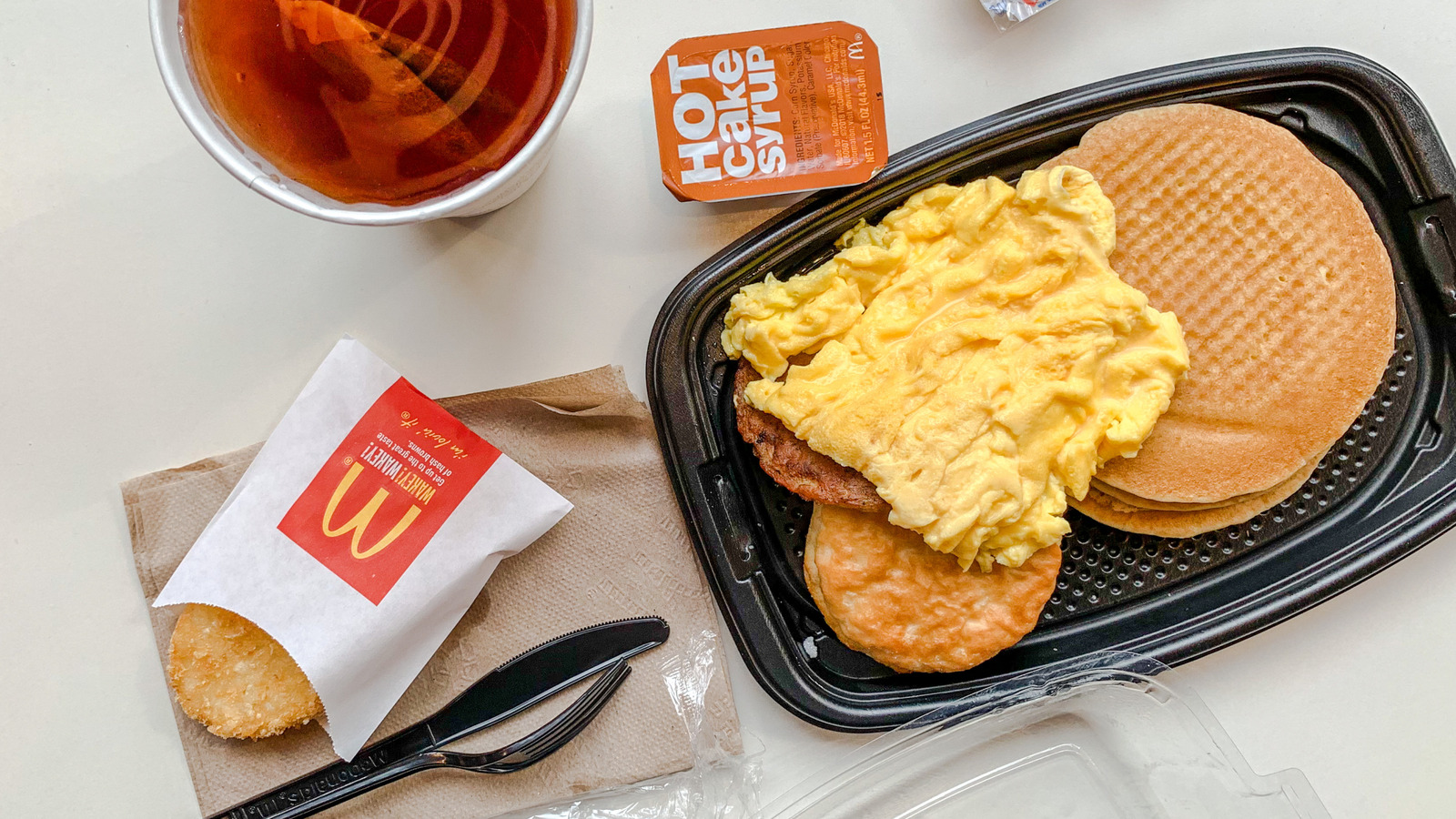McDonald's isn't exactly known for subtlety. From neon-hued sauces to aggressively cheerful mascots, the fast-food giant has never shied away from making bold choices — and that includes breakfast. While the chain is one of the fast-food brands that uses 100% real eggs , not everything in its scrambled egg blend is straightforward.
A quick look at the ingredient list reveals a quiet little addition: citric acid. And depending on who you ask, that can mean nothing to worry about, or it can mean the downfall of modern food. Citric acid has been added to McDonald's scrambled eggs for years without much fanfare.

But lately, it's been catching more attention online, thanks to viral questions like "Is citric acid bad for you?" that suggest there's more to the story. Some nutrition labels list it prominently; others tuck it behind hard-to-pronounce preservatives. But in McDonald's case, it's right there beneath the eggs — small, acidic, and oddly controversial.
Still, what even is citric acid? And why does it matter if it's in your breakfast? For a chain that built its brand on consistency, this little ingredient has sparked a surprising amount of curiosity. Is citric acid really something to worry about? Citric acid might sound like something you'd only find in a science lab, but it's surprisingly common — and not just in fast food. Citric acid is found naturally in citrus fruits and added synthetically to everything from soda to supplements; it wears a lot of hats.
In McDonald's scrambled eggs, its job is simple: to preserve freshness and prevent discoloration. And for something that blends into the background, it's picked up a suspicious amount of internet notoriety. Most health experts and agencies (including the FDA ) agree that citric acid is generally safe to consume.
In fact, some might even say that citric acid should be a pantry staple , given how often it shows up in everyday products. It's colorless, flavor-enhancing, and gives lemon juice its signature tang. But the synthetic kind, which is usually made using a type of mold, is where things get complicated.
Some researchers have questioned whether rare allergic reactions could be linked to mold residue in the lab-made version — not the citric acid itself. It's not exactly a smoking gun, but it's enough to keep the rumor mill spinning. Still, for most people, a McDonald's breakfast isn't likely to be the source of a citric acid crisis.
And if you're feeling picky, there's always a workaround. A McDonald's ordering hack to get fresh eggs for breakfast involves swapping in a freshly cracked round egg, which skips the citric acid entirely..
Food

The Ingredient Addition Found In McDonald's Scrambled Eggs (And Is It Actually Controversial?)

McDonald's breakfast might be your morning highlight. If you order scrambled eggs, you should know they include this ingredient. But is it really controversial?















